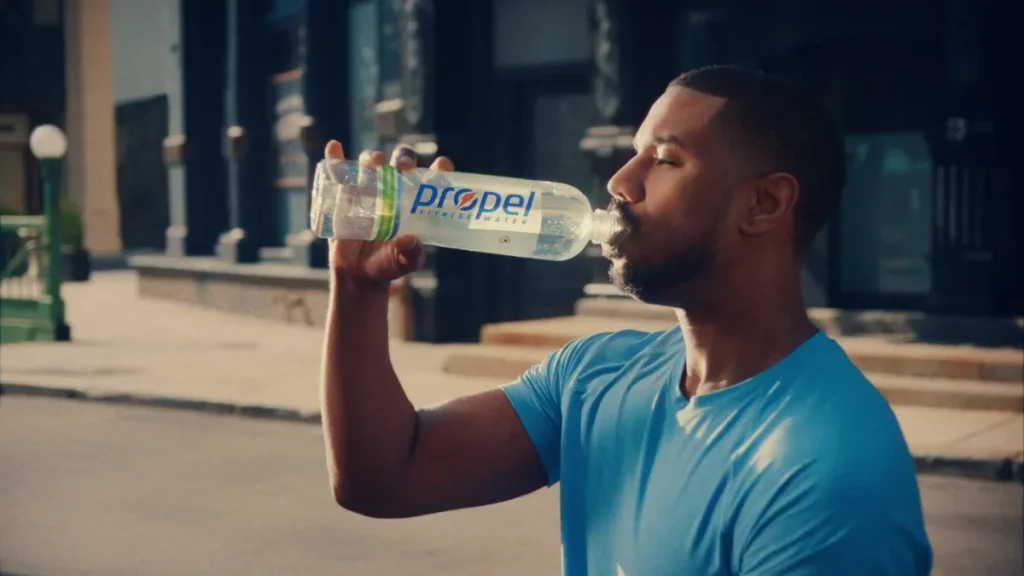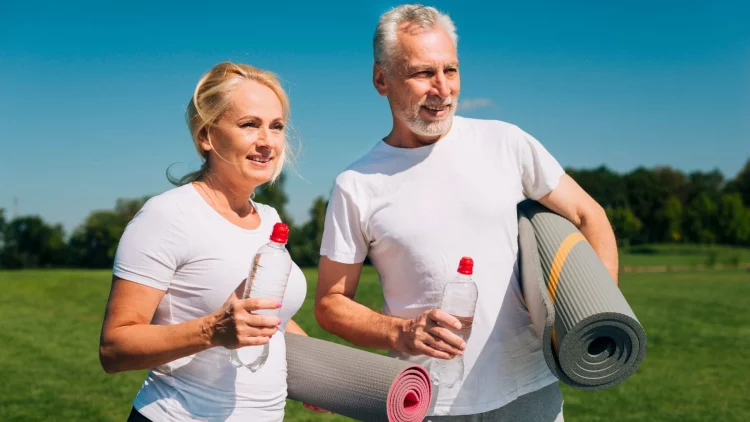Water might not have the glamour of protein powders or the intensity of interval training, but it plays a foundational role in every movement your body makes. From lubricating joints to regulating temperature, delivering nutrients, and powering your muscles, hydration is the often-overlooked fuel source that separates an effective workout from an exhausting one. Yet despite its importance, many people—especially those with active lifestyles—go through their routines dehydrated, unaware of the performance drops, recovery issues, and long-term risks this can cause. This article unpacks the science of hydration before, during, and after exercise, and offers practical formulas and hacks to ensure you’re giving your body the fluid support it needs to thrive.
Why Hydration Matters More Than You Think
Up to 60% of the human body is made of water. Muscles are about 75% water, and even bones contain about 30% water. Dehydration as little as 2% of body weight can significantly impair athletic performance. Fatigue sets in faster, heart rate increases, perceived effort goes up, and coordination declines. Longer term, poor hydration affects everything from digestion to skin health to kidney function. For active individuals, consistent hydration isn’t optional—it’s the foundation of sustainable fitness.
The Hidden Signs of Dehydration During Exercise
Thirst isn’t always the first sign you need water. Often, dehydration presents subtly during physical activity:
- Elevated heart rate even at moderate effort
- Dizziness or lightheadedness
- Muscle cramps or early fatigue
- Headaches or foggy thinking
- Sticky mouth or dark urine
- Drop in performance or stamina
If any of these sound familiar during your training, your hydration game needs a serious upgrade.
Hydration Before Your Workout: Prime Your System
Drinking water only during exercise is like trying to fix a leaky tire mid-race. Proper hydration starts hours before you lace up your shoes.
How Much to Drink Pre-Workout
General guidelines recommend:
- 16–20 oz (500–600 ml) of water 2–3 hours before exercise
- 8–10 oz (250–300 ml) 20–30 minutes before exercise
For early morning workouts, drink at least 8–12 oz (250–350 ml) upon waking to rehydrate after sleep. If your workout lasts longer than 60 minutes or takes place in heat/humidity, consider adding electrolytes before starting.
Pro Tip: Avoid excessive caffeine pre-workout if you’re already borderline dehydrated. Coffee is fine in moderation, but don’t let it replace water.
Hydration During Exercise: Find Your Sweat Sweet Spot
Hydration during exercise depends on intensity, duration, and your personal sweat rate. While guidelines are helpful, personalization is key.
General During-Workout Hydration Guidelines
- Short workouts (<60 minutes): Water is usually enough. Sip 4–8 oz (120–240 ml) every 15–20 minutes.
- Moderate workouts (60–90 minutes): Aim for 16–24 oz (500–700 ml) per hour, depending on intensity and temperature.
- Intense or long workouts (>90 minutes or in heat): Use electrolyte-infused water or sports drinks to replenish sodium, potassium, and magnesium. Aim for 24–32 oz (700–950 ml) per hour in hot conditions.
Know Your Sweat Rate
To personalize your hydration, try this simple sweat rate test:
- Weigh yourself before and after a 60-minute workout (nude and dry).
- Subtract post-workout weight from pre-workout weight.
- Every 1 lb (0.45 kg) lost equals roughly 16 oz (475 ml) of sweat.
Formula:
Sweat rate (oz/hour) = (Weight lost in lbs × 16) + Fluid consumed during the workout
This number represents how much you need to drink per hour to stay balanced.
What About Electrolytes?
Sweat doesn’t just lose water—it drains sodium, potassium, calcium, and magnesium. If you train for over 60–75 minutes or sweat heavily, electrolyte replacement becomes critical.
Electrolyte options include:
- Sports drinks (watch sugar content)
- Electrolyte tablets or powders (customizable and portable)
- Natural options like coconut water (rich in potassium but low in sodium)
- DIY mix: 500 ml water + pinch of sea salt + splash of lemon + teaspoon honey
Hydration After Exercise: Restore and Rebuild
Post-workout hydration helps your body recover and adapt. Water supports nutrient transport, tissue repair, and waste removal. It also helps reduce muscle soreness and supports metabolic processes.
Post-Workout Hydration Guidelines
- Replace 125%–150% of fluid lost during exercise within 2–6 hours
- Include electrolytes if the workout was intense or sweat-heavy
- Eat water-rich foods (fruits, vegetables, soups) to aid rehydration
Practical Formula:
If you lost 1 kg (2.2 lbs) of body weight during exercise, drink about 1.5 liters (50 oz) of fluid over the next few hours.
Bonus Recovery Tip: Add collagen or protein powder to your post-workout water or smoothie to further support muscle repair and joint health.
Hydration Isn’t Just About Water: Meet the Supporting Cast
Hydration is a combination of fluid and electrolytes. But it’s also influenced by:
- Diet: High-protein, high-fiber, and high-sodium diets increase water needs
- Caffeine and alcohol: Both are diuretics and can slightly dehydrate
- Medications: Some increase fluid loss—consult your doctor
- Environment: Hot, humid, or high-altitude environments demand more hydration
- Menstrual cycle: Women may retain or lose more water depending on hormonal shifts

Smart Hydration Hacks for Busy Lives
Let’s face it: remembering to drink water throughout the day isn’t easy. Here are practical ways to stay hydrated without overthinking it.
1. Start Your Day With Water
Make it a ritual: 8–12 oz first thing after waking.
2. Carry a Marked Water Bottle
Use time-stamped bottles or apps like WaterMinder or Plant Nanny for reminders.
3. Eat Your Water
Cucumbers, watermelon, oranges, strawberries, and lettuce are over 90% water.
4. Add Flavor Without Sugar
Infuse your water with lemon, mint, cucumber, berries, or apple slices for variety.
5. Match Water with Meals and Coffee
For every cup of coffee or meal, drink a glass of water.
6. Electrolyte Check-Ins
Use tablets or powders after workouts or when you feel sluggish.
7. Customize by Color
Urine color is a simple hydration check. Pale yellow = good. Dark amber = drink up.
8. Pair with Habits
Link water intake with existing habits—e.g., drink during meetings, before emails, or after bathroom breaks.
Hydration Myths Busted
Myth 1: 8 Glasses a Day Is Enough for Everyone
Hydration needs vary based on activity, diet, and body size. Active individuals often need more—closer to 3 liters (100 oz) or beyond.
Myth 2: If You’re Not Thirsty, You’re Hydrated
Thirst lags behind actual hydration needs. If you’re feeling thirsty, you’re already behind.
Myth 3: Too Much Water Is Always Better
Overhydration (hyponatremia) is rare but serious. It dilutes sodium and can be dangerous, especially during endurance events. Balance is key.
Myth 4: Coffee and Tea Don’t Count Toward Hydration
They do. While slightly diuretic, they still contribute net fluid if consumed moderately.
Hydration for Special Populations
Older Adults: Reduced thirst sensation means they may need reminders to drink.
Children: Smaller bodies overheat faster—ensure regular sips, especially outdoors.
Pregnant/Breastfeeding Women: Fluid needs increase significantly.
Athletes in Hot Climates: Risk of heat illness and dehydration skyrockets—fluid and sodium replacement is critical.
When to Use Sports Drinks vs. Water
Use plain water for most workouts under an hour. Reserve sports drinks for:
- Long runs or rides (90+ minutes)
- High-heat/humidity sessions
- Multiple workouts in one day
- Heavy sweaters or salty sweaters (white streaks on clothing)
Choose lower-sugar options or dilute with water to avoid sugar overload.
Conclusion: Drink With Purpose, Not Just Habit
Hydration isn’t about gulping gallons of water mindlessly. It’s about tuning into your body, understanding its needs, and giving it the support it deserves—before, during, and after every workout. With proper hydration, your energy soars, recovery improves, and performance reaches new heights. In a world obsessed with the next fitness fad, don’t overlook the simplest, most powerful performance enhancer available to you: a well-timed glass of water.

















































